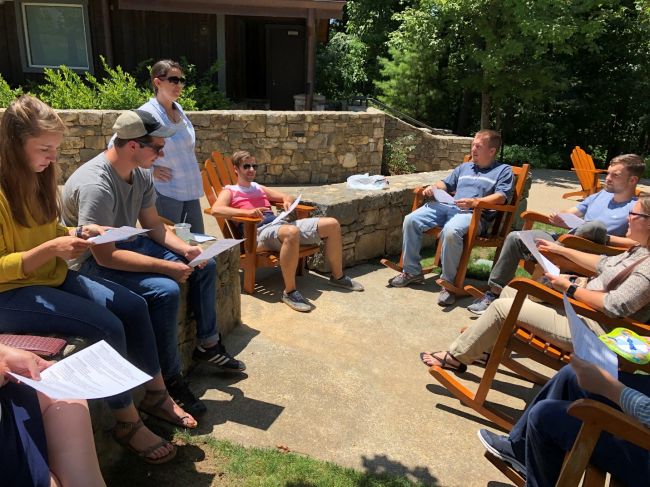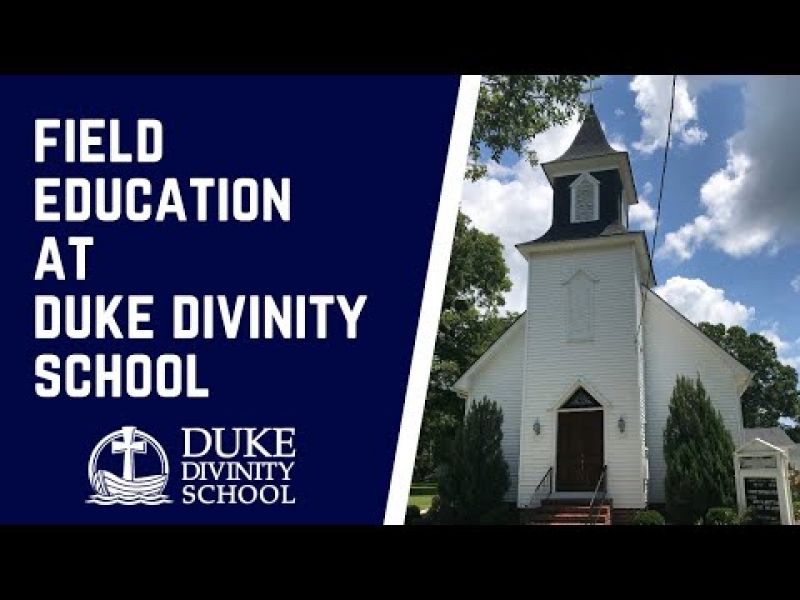Field education is central to Duke Divinity School’s M.Div. program. Through contextual learning in churches and organizations across the country and world, students practice the skills of ministry, discern God’s call on their life and vocation, and reflect theologically with an experienced supervisor.

"Theological education must have the practical experiences of field education in order to truly be a well-rounded and well-informed education. One approach to ministry that works in one setting may not be fruitful in the next. The revelation of our Triune God is that God is dynamic, fluid, and diverse. The same can be said for ministry and how we should approach the pastoral task."
General Guidelines
Two units of field education are required for graduation in the residential M.Div. degree program. Four placement periods are available: during the second and third academic years (part-time for 13-15 hours per week for 30 weeks for a total of 400 hours) and during the intervening two summers (full-time for 10 weeks for a total of 400 hours). A total of four funded placements through the Office of Field Education are allowed during the residential M.Div. program.
Residential M.Div. students may seek a placement through the Office of Field Education. Residential and hybrid M.Div. students may student-initiate placements under the guidelines of the Office of Field Education.
Hybrid M.Div. degree program students must complete at least 400 hours of field education through one or more units of no fewer than 200 hours each. Students working in a ministry setting may utilize that setting for one unit of field education. Hybrid M.Div. students choosing to pursue Clinical Pastoral Education (CPE) may count it as up to 200 hours, but it cannot by itself fulfill field education requirements.
Placement Opportunities
Students are carefully placed in a wide variety of field education settings. Placement opportunities include:
- Rural United Methodist Church placements throughout North Carolina
- Nonprofit ministry settings that include, but are not limited to, camping ministries, prison ministries, community organizing, urban ministries, advocacy work, housing and homelessness, children’s homes, creation care/ecology placements, end-of-life care, and campus ministry settings
- International opportunities in countries such as Kenya, Uganda, South Africa, El Salvador, Peru, and Mexico
- Partner churches across the country that engage students in areas such as racial reconciliation, church planting, leadership development, community engagement and more
- Church settings in Baptist, Anglican/Episcopal, Presbyterian, Mennonite, African Methodist Episcopal, African Methodist Episcopal Zion, and other denominational traditions
- Clinical Pastoral Education
- Student Pastorates - Students can meet some or all of their field education requirements if they are appointed as a pastor of a local church during their M.Div. education. These appointments are arranged by the appropriate denominational official or body, but students must register with the Office of Field Education and meet all of its requirements for graduation
Latest Feature Articles


Field Education Stipends for Residential M.Div. Students
Through the generosity of the Rural Church Division of The Duke Endowment, based in Charlotte, N.C., placements in Endowment-eligible churches and agencies in North Carolina provide substantial stipend and tuition assistance for residential M.Div. students. The Duke Endowment-eligible placements provide $10,000 per student. Other placements for residential M.Div. students through the Office of Field Education also provide $10,000 in stipend and tuition assistance.
Communities of Learning
Communities of Learning are collaborative, ecumenical, and geographical cohorts of students and ministry leaders committed to connecting congregations with their communities. Through this program, students who are serving in field education placements in a particular geographical area come together with local ministry and nonprofit leaders to work together on strengthening their communities.

Find Forms & Policies
Find forms, policies, and other detailed information for churches, supervisors, mentors, and students.

